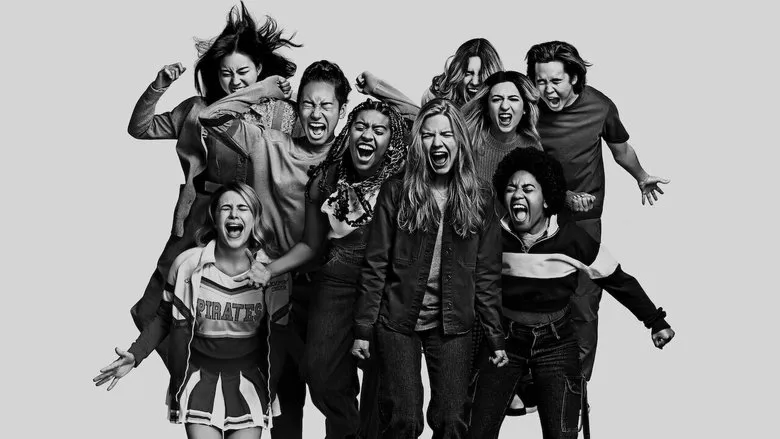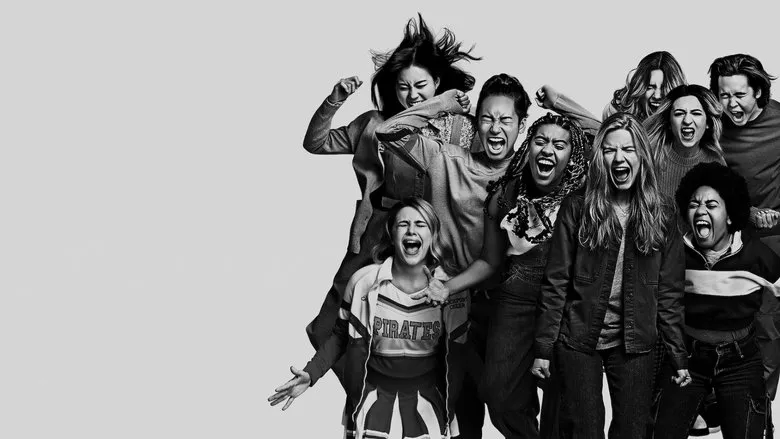Moxie: A Spirited Rebellion in High School Halls
“Moxie” introduces us to Vivian, a seemingly ordinary high school senior whose immediate aspirations revolve around escaping the confines of her current life with her best friend, Claudia, and venturing off to UC Berkeley. However, her world takes an unexpected turn with the arrival of Lucy, a new student whose bold and unwavering spirit directly challenges the school’s entrenched hierarchy, particularly embodied by the arrogant football captain, Mitchell Wilson. Witnessing Lucy’s defiant stand, coupled with the stirring revelations about her own mother’s rebellious past, ignites a spark within Vivian. This newfound inspiration culminates in the creation of “Moxie,” an anonymous zine passionately designed to ignite a school-wide revolution against pervasive discriminatory practices and ingrained sexism.

A Gentle Exploration of Feminist Ideals
Despite the empowering connotations of its title, Amy Poehler’s “Moxie” doesn’t quite ascend to the heights of a fiercely radical feminist manifesto. Nevertheless, the film’s undeniable charm and the vibrant energy exuded by its young cast successfully keep it engaging and afloat. The movie sets its sights on an impressively ambitious range of societal issues, perhaps biting off more than its coming-of-age genre can fully chew. Topics such as systemic sexism, the perilous dangers of a culture of silence, the intricate dynamics of white privilege, and the unique challenges faced by individuals with disabilities are all delicately touched upon, albeit with varying depths of exploration. It occasionally feels as though the narrative is checking off a modern, progressive agenda checklist. While the film commendably addresses these multifaceted issues, its portrayal feels more akin to an unbloomed flower, promising potential but not yet fully blossoming into a radical statement. Ultimately, this liberal and progressive premise largely serves as a compelling backdrop for the central narrative: a compelling journey of self-discovery and coming-of-age for the main character.

Untapped Potential and Acknowledged Gaps
Within this ambitious landscape crowded with numerous important societal issues, it’s inevitable that some intriguing narrative threads are regrettably sidelined. For instance, Lucy, the passionate new student whose initial defiance served as the primary catalyst for Vivian’s creation of the “Moxie” zine, surprisingly fades into the background relatively quickly. Similarly, the glimpses we receive of the protagonist’s mother’s vibrant, rebellious past, which is explicitly stated to have played a significant role in shaping Vivian’s own evolving identity, remain tantalizingly brief and are not explored with the depth they seemingly deserve.
Reinventing the High School Narrative
Despite these acknowledged flaws and missed opportunities, “Moxie” largely manages to feel remarkably refreshing and relevant. It skillfully sidesteps many conventional American high school clichés, elevating it beyond the realm of just another “High School Musical”-esque production for the 21st century. The characters are crafted with a commendable sense of authenticity, making them feel genuinely real and relatable, and leaving the audience with a desire to follow each of their individual stories further. However, as previously highlighted, the film admittedly doesn’t fully delve into each girl’s unique experiences with the various forms of discrimination and injustice that they face.

Universal Struggles and Diverse Feminist Approaches
It is remarkably easy for viewers to empathize deeply with the young women characters in “Moxie,” primarily because their struggles resonate with a profound sense of familiarity, transcending geographical or cultural boundaries. How many young girls, irrespective of their background, have been subtly or overtly advised to “not make waves” in order to navigate life with greater ease? Who hasn’t grappled with the pervasive pressures of societal beauty standards? And who, unfortunately, hasn’t been on the receiving end of thoughtless or outright sexist comments? “Moxie” also intelligently explores the nuances and varying approaches to feminism itself. A poignant example is Vivian’s best friend who, while genuinely concerned and supportive of the movement’s ideals, isn’t ready to actively or publicly involve herself in direct action, a choice that the film respectfully acknowledges as valid.

Netflix’s Role in Modern Dialogue
Some cynical observers might suggest that Netflix is merely pushing a particular agenda with productions like “Moxie,” and while that might hold some truth, one must consider whether such an “agenda” is inherently a negative thing. This kind of open and honest dialogue, particularly when presented to and discussed by today’s impressionable students, will undoubtedly retain its crucial importance for many years to come. It is truly inspiring and empowering to witness these young, diverse characters presented in such a positive light, serving as a powerful and timely reminder that girls profoundly possess a revolutionary spirit—a spirit that has the undeniable capacity to change the world, and indeed, one that will.